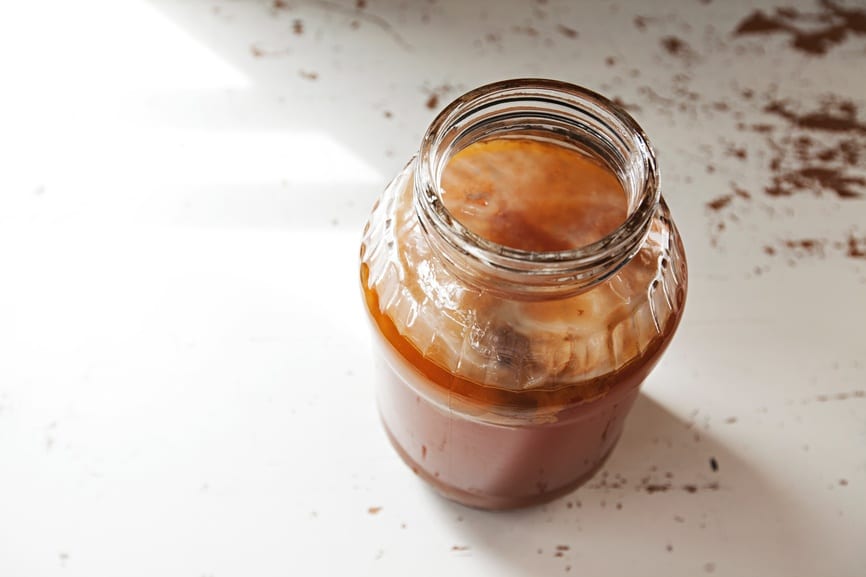Clean 21: 21 Day Detox
Our Signature 21-Day Full-Body Reset
Questions? Ask about this product
Free Shipping On Orders Over $50
Complementary products


Somewhere in between the matcha, yerba mate and green tea trends there is kombucha. Perhaps you’ve spent years hearing about the health benefits — and passing the growing section of the refrigerator in the local natural grocery store — but something about the phrase “fermented yeast and bacteria” isn’t exactly a selling point for some people in a beverage. However, as probiotics and probiotic beverages are definitely here to stay, it may be time to make the jump.
Kombucha has been around for 2,000 years, so as part of my journalistic duty, I was long overdue to try it. I spent a whopping $5 on a hibiscus ginger flavored version for my taste test. Here’s what I have to report:
My bottle contained live enzymes, probiotics, and amino acids. This blend of nutrients will help promote a healthy gut. That means if you’re struggling with digestive issues, it could help to start your morning with a cup of kombucha tea. It also contains B-vitamins, which I’ve been recommended to help deal with migraines, as well as increase memory, promote energy and aid in digestion.
I was very glad I had my flavorings to mask the taste of fermented bacteria. The slightly ripe taste is unique but not unpleasant … after a few sips. I found the more I drank it, the more I enjoyed it.
How do you think they cover the taste of all that fermented health? If you’re watching your sugar intake, store-bought kombucha may not be for you. My 16oz bottle contained 10 grams of sugar — not necessarily a dealbreaker, but still more than my typical green tea which is zero grams. There are also many flavors within brands that are low in sugar, usually ones that are ginger, cayenne, or original. Read the labels and choose wisely.
DIYers can buy a personal “culture starter” of SCOBY, aka “symbiotic culture of bacteria and yeast” and ferment cultures at home. This allows for flexibilty for you to choose flavors and your tea of choice. Because bacteria and fermentation are involved, be sure to follow a recipe to its exact specifications and throw out any batches that are left out for longer than the allotted time. Keep a watch for mold and toss your brew if you spot any growth. There are even kombucha homebrew kits now available to take a lot of guesswork out of it.
Kombucha contains trace amount of alcohol. If you’re pregnant or avoid alcohol, be aware that store-bought kombucha must contain less that 0.5 percent alcohol to be sold as a non-alcoholic beverage (and home-brewed tea may have even more). After that, you’ll have to be carded for your tea. Some women drink kombucha throughout their pregnancy with no issues, and find it can help digestion, it’s really up to what feels best to you and your medical care provider.
The American Cancer Society says “no human studies have been published in the available scientific literature that support any of the health claims made for kombucha tea.” Anecdotally, kombucha lovers have said that the tea helps with everything from PMS to hair growth to appetite loss and IBS. At Clean, we definitely see a difference when including fermented foods in our diets!
If you’re a kombucha believer, you’re not alone. In 2015, kombucha occupied one-third of the “refrigerated functional beverage shelf space” in Whole Foods. Functional foods and beverages are a slow-burn in popularity, despite trends, as you usually won’t feel an amazing change right after eating or drinking, but long-term will feel good effects.
Can you have kombucha on the 21-Day Clean Program? Kombucha is made of simple ingredients, and despite the small amounts of black tea, alcohol, and sugar (most of which gets eaten up in the fermentation process), we think you can have kombucha occasionally during your program. Again, it’s up to you and how you feel, but it can be a nice treat to have, especially after cutting out alcohol. In a case like kombucha, we feel the benefits are worth it!
Written by Leah Prinzivalli
If you like this article, you might also like Sauerkraut Recipe: Improve Your Digestion with a Little Fermentation